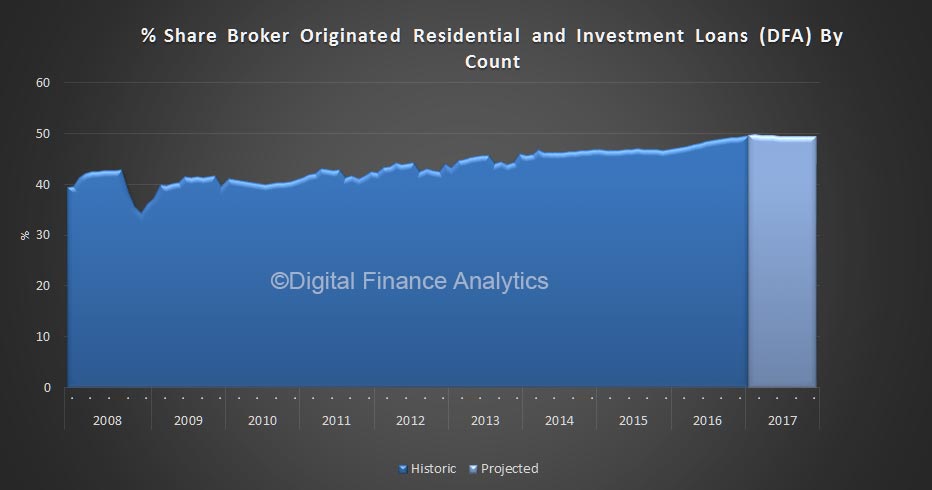ASIC today announced a targeted industry surveillance to examine whether lenders and mortgage brokers are inappropriately recommending more expensive interest-only loans. With many lenders, including major lenders, charging higher interest rates for interest-only loans compared with principal-and-interest loans, lenders and brokers must ensure that consumers are not provided with unsuitable interest-only loans.
Building on earlier work on home lending standards, ASIC is also announcing that eight major lenders will provide remediation to consumers who suffer financial difficulty as a result of shortcomings in past lending practices.
Interest-only loans
ASIC will shortly commence a surveillance to identify lenders and mortgage brokers who are recommending high numbers of more expensive interest-only loans. Data will be gathered using ASIC’s compulsory information-gathering powers from large banks, other banks, mutual banks and non-bank lenders.
In an environment where many interest-only loans are now clearly more expensive than principal-and-interest loans, lenders and mortgage brokers must carefully consider the implications of providing borrowers with interest-only loans. While interest-only loans may be a reasonable option for some borrowers, for the vast majority of owner-occupiers in particular, an interest-only loan will not make sense.
Past lending practices
In 2015, ASIC conducted a review of how lenders provide interest-only home loans. ASIC found that lenders were not properly inquiring into a consumer’s actual living expenses when assessing their capacity to make repayments. ASIC’s review led to industry-wide improvements by lenders: see 15-220MR Lenders to improve standards following interest-only loan review.
As part of today’s announcement, eight lenders examined by ASIC have improved their practices for enquiring about expenses to determine the consumer’s financial situation and capacity to make repayments. Rather than obtaining a single monthly living expense figure and then relying on a benchmark figure to assess suitability, borrowers’ actual figures for different categories of living expenses (e.g. food, transport, insurance, entertainment) will now be obtained. This will provide lenders with a better understanding of consumers’ expenses.
In addition to typical hardship processes, lenders will individually review cases where consumers suffer financial difficulty in repaying their home loans, and determine whether they have been impacted by shortcomings in past lending practices. Where appropriate, consumers will be provided with tailored remediation, which may include refunds of fees or interest.
As interest rates are currently at record lows, and were falling in the lead up to 2015 and during 2016, ASIC does not expect lenders to identify high numbers of consumers who are now experiencing financial difficulty due to past lending decisions. Nevertheless, these additional actions will ensure that consumers are not disadvantaged.
To ensure that these remediation programs are operating effectively, ASIC is requiring lenders to audit their processes.
ASIC Deputy Chairman Peter Kell said, ‘Home loans are the biggest financial commitment most people will ever make. In assessing whether borrowers can meet loan repayments without substantial hardship in the short and longer term, it is important that lenders can collect and rely on information which provides an accurate view of the consumer’s financial situation. This is especially the case when interest rates are at record low levels’.
‘Lenders and mortgage brokers must also ensure that consumers are being provided with the home loan product that meets their needs. Lenders and mortgage brokers need to think twice before recommending that a consumer obtain a more expensive interest-only loan’.
Background
In 2015, ASIC reviewed interest-only loans provided by 11 home lenders, and issued REP 445 Review of interest-only home loans (Refer: REP 445) in 2015, which made a number of recommendations for home lenders to comply with their responsible lending obligations (Refer:15-297MR).
In REP 445, ASIC gave guidance on how lenders can make proper inquiries into a borrower’s actual expenses.
ASIC’s monitoring of lenders’ home lending practices continues. ASIC will carry out further reviews to ensure that industry standards are improved where necessary. ASIC will also take enforcement action as appropriate.
Any consumer with concerns about their ability to make home loan repayments should contact their lender in the first instance. Consumers can also access free external dispute resolution, through either the Financial Ombudsman Service (FOS) or Credit and Investments Ombudsman (CIO).
The eight lenders are:
- Australia and New Zealand Banking Group Limited
- Bendigo and Adelaide Bank Limited
- Commonwealth Bank of Australia
- Firstmac Limited
- ING Bank (Australia) Limited
- Macquarie Bank Limited
- National Australia Bank Limited
- Pepper Group Limited.
ASIC has also provided guidance to industry in Regulatory Guide 209 Credit licensing: Responsible lending conduct (Refer: RG 209).
Responsible lending is a key priority for ASIC in its regulation of the consumer credit industry. The changes made by the eight reviewed lenders continue a number of developments and outcomes involving responsible lending:
- Treasury releases ASIC’s Review of Mortgage Broker Remuneration.
- ASIC filed civil penalty proceedings against Westpac in the Federal Court on 1 March 2017 for alleged breaches of the National Consumer Credit Protection Act 2009 (refer: 17-048MR).
- Cairns-based car yard lender, Channic Pty Ltd, and broker, Cash Brokers Pty Ltd, breached consumer credit laws (refer: 16-335MR). Part of the court’s judgement was that the broker did not meet all of the necessary responsible lending obligations before providing credit assistance because he did not consider the borrower’s insurance expenses, which was required under the credit contract and represented a significant portion of the borrower’s income.
- ANZ paid a $212,500 penalty for breaching responsible lending laws when offering overdrafts (refer: 16-063MR).
- Payday lender Nimble to refund $1.5 million following ASIC probe (Refer: 16-089MR).
- BMW Finance pays $391,000 penalty for breaching responsible lending and repossession laws (refer: 16-019MR).
- Westpac pays $1 million following ASIC’s concerns about credit card limit increase practices (refer: 16-009MR).
- Bank of Queensland Limited improved its lending practices following ASIC’s concerns about the way it assessed applications for home loans (Refer: 15-125MR).
- The Cash Store Pty Ltd and Assistive Finance Australia Pty Ltd failed to comply with their responsible lending obligations. The Federal Court awarded record civil penalties (refer: 15-032MR).
- Wide Bay Australia Ltd (now Auswide Bank Ltd) made changes to their responsible lending policy as a result of ASIC’s intervention (refer: 15-013MR).









